

For all of their good intentions, many of the games that we come to be excited for never actually make it to their long-awaited launch days. This is a trend that is becoming far too prevalent in this day and age. Some claim that it heralds the end of MMO gaming, while others choose to believe that it merely indicates an oversaturated market. Or perhaps these games are just pining for the fjords. Whatever it might mean, it doesn’t matter to the once-promising games that never made it out of beta testing, or for yet others that didn’t even manage to make it into beta. Here are six quite interesting ideas for games that never made it to launch for one reason or another despite having a decent amount of time and passion spent on them prior to cancellation.
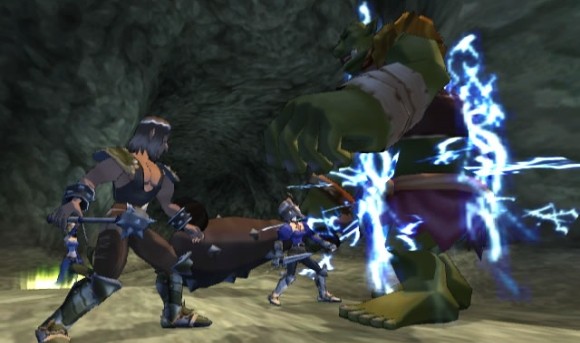
Of course, some games don’t even make alpha. Prospero has remained very much a mystery over the years thanks to Valve’s habit of being secretive with us. That is until episode 3 of ValveTime went live last year. Set to be a third-person, story-driven MMORPG, Prospero was reportedly being worked on around the same time as the original Half-Life game but ended up on the scrap-head so that Valve could allocate its’ resources entirely to Half-Life which launched in 1998. I guess MMOs just weren’t big enough back then for Valve to consider this a project worth the time and money. So just what could have been? Inspired by early 90s adventure puzzle game for the Mac, Myst, and writer Jorge Luis Borges, Prospero was due to be set in a hub library in which the player could access any number of official and user-created worlds. Valve claimed it would have been a story focused game that players could explore and enter into combat with “psionic” powers. Many of its’ ideas trickled into future Valve games and services, so while Prospero never made it to our screens entirely, it did give a small hand in shaping the PC gaming we know today.

First announced in 2002, True Fantasy Live Online was supposed to be one of Xbox’s premier games. You know, the game that makes players need that console in their life? In development by the Japanese studio, Level-5 (now famous for the Professor Layton series for the Nintendo-DS), True Fantasy Live Online would have been the first MMO for Xbox if it had come to fruition and was hotly anticipated. Players would have been able to choose roles ingame as explorers or citizens and would then evolve physically over time (similar to the way they do in Fable). They could then have partaken in personalized crafting, fully customisable player housing, an ever-changing story, and most importantly, dinosaur mounts. With beautiful cel-shaded graphics, it could have heralded a very different age for MMOs while utilising Xbox Live’s voice chat for communication between players – although this part was easier said than done. The game itself was almost complete, however with development taking so long on implementing the voice feature, Microsoft were becoming increasingly frustrated with Level-5’s pacing, and Level-5 were very much feeling the pressure, resulting in clashes between the two companies and they apparently split on “less than amicable terms” in June 2004. In the end, True Fantasy Live Online wasn’t to be and Microsoft announced that development on the game had sadly ceased. A shame indeed.

Now here’s a bizarre game which seemed to rise to popularity almost as quickly as it fell. Mutable Realms started work on Wish in 2003, calling the game a ‘UMMORPG’ (Ultra Massive Multiplayer Online Roleplaying Game). It promised players no levels and dynamic content which would visibly change the world over time utilising active game devs to hand out quests and run huge ingame events which would effect the world on a regular basis. In addition, players could trigger dynamic events while out in the world based on certain criteria. However, they reached a few budget limitations which meant that the game was limited to auto-pathing and click-to-move, which according to testers worked very well. The first closed beta test was announced in January 2004 and was previewed at E3 in the same year, with December 1st set to be the beginning of open beta, and with around 60,000 beta applicants things were looking very good for Wish. However, open beta ended up delayed for a month and 10 days later, Mutable Realms announced the cancellation of Wish. Why? Well, it’s a bit of a mystery really, although Dana Massey revealed a fair bit almost 2 years later in her article on The Escapist website and it seems that the game was merely a victim of its own success. Wish underwent so much hype that by the time open beta came about, the game had changed a little too much since those first months of closed beta and it was no longer the same game that people loved back in the early days of testing. Some things just aren’t meant to be.
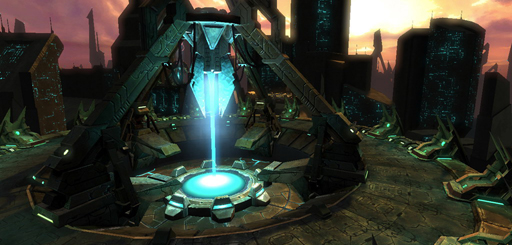
Incidentally, Blizzard weren’t the only game studio to have a ‘Project Titan’ never reach the public’s eye. Ensemble Studios (known for Age of Empires and Halo Wars) were working on their own Project Titan around 2005-2007 while they were developing Halo Wars. This was the unannounced Halo MMO which had a pretty hefty $90 million Microsoft budget behind it and was planned to have a public quest system, which eventually went into Warhammer Online, though not much else is known about the game itself as Microsoft canned the project upon a realisation that gamers don’t necessarily want more of the same all the time, as the huge success of the Nintendo Wii showed, and so understandably wanted to put the $90 million elsewhere. We have since seen the release of games such as Destiny, which is likely as close as we’ll ever get, and if anything shows us the issues behind such a large budget: it doesn’t necessarily lead to the best game.

Slated to be an EVE Online styled sandbox MMO with a vampire theme, World of Darkness (based on the exceedingly popular World of Darkness tabletop RPG) was almost a decade’s worth of work and love. World of Darkness was secretly working on this game for several years before White Wolf Publishing merged with CCP, the developers of EVE Online back in 2006, taking on most, if not all, of the company’s staff and working back-and-forth on both EVE and World of Darkness. It would have featured social and political elements with the aim to evoke emotional feelings in the player. However, it sounds to me as though they were taking on too much by wanting to cater to both hardcore and casual players within three types of online games: open-ended sandboxes, theme-park styled MMORPGs, and the more social games like Second Life, interconnecting the differing styles somehow, with a heavy focus on aesthetics and customisation.
So it is little wonder that World of Darkness never made it to a live launch, though diehard fans were absolutely outraged having waited years only to be told back in April 2014: ‘sorry, but no World of Darkness for you’ after a rocky few years in which the game supposedly reached alpha-phase no less than three times. CCP have since reshuffled to present themselves as the EVE Universe company.
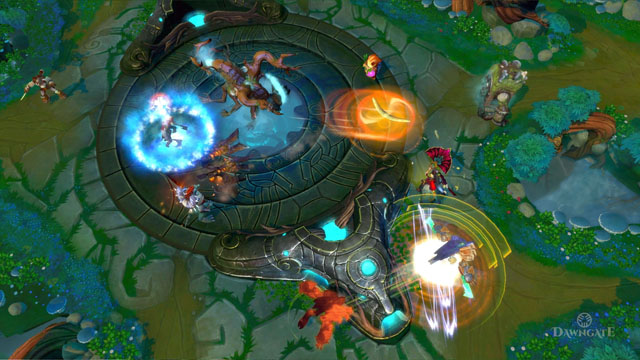
One of the more recent games that sadly never made it to our monitors, unless you played the beta is EA-backed Dawngate. We’ve already looked at the things that Dawngate did right, but why exactly didn’t it work out? Well, we’ve also covered a few reasons for its failures as well, but first and foremost, Dawngate was dipping its toes into a market already full of very very similar games, and a MOBA is a game that relies on a somewhat bustling community to be queuing for matches and potentially using the store. I could sit here and list a few titles but knowing how many there are, I don’t think there’s space enough in this post for that. Let’s just face it, we have more than enough arena based games in which pre-set heroes must push and defend arenas with additional AI minions occasionally to help them do so, and while Dawngate had some good ideas, such as players choosing a role at the start of a match rather than choosing their shaper based on the role they’d like to fill, and having to defeat a boss rather than a structure to win the match, it just wasn’t innovative enough and so EA put a lid on the Dawngate jar.
Overall, all of these game’s companies have one major theme in common: a loss in funding, whether because an investor stepped away, or because the project proved more costly than they’d originally hoped for, causing an inevitable need to cut their losses, or perhaps they simply wished to put their resources towards a different project, but it all comes down to funding. It is not a new phenomenon at all but in fact a natural process of the gaming industry. Whatever the case, whenever a project born out of love closes before it even has a chance to breathe, it is a massive disappointment, for the fans who heartily get behind it and for the developers who put their heart and soul into their games. Sometimes, it’s nice to wonder what could have been if things had turned out a little differently.

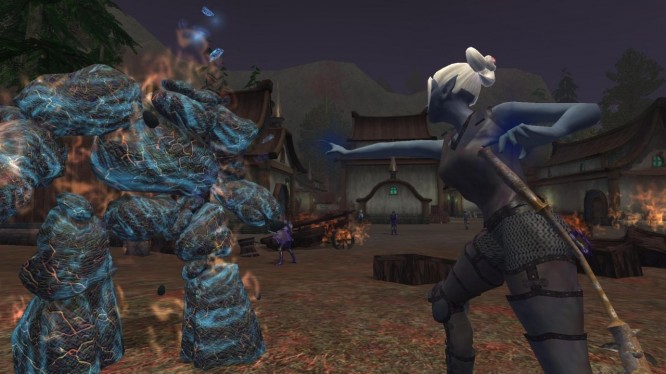


 Farewell, Wizardry Online .
Farewell, Wizardry Online .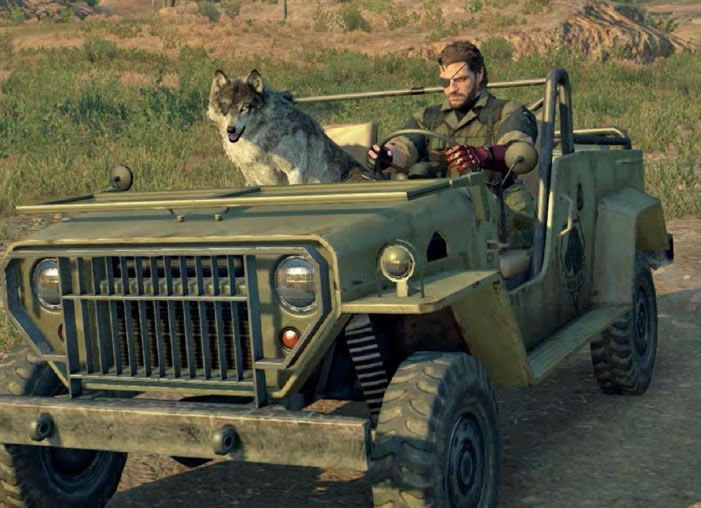 Metal Gear Solid V: The Phantom Pain Guide: How To Get A D-Dog
Metal Gear Solid V: The Phantom Pain Guide: How To Get A D-Dog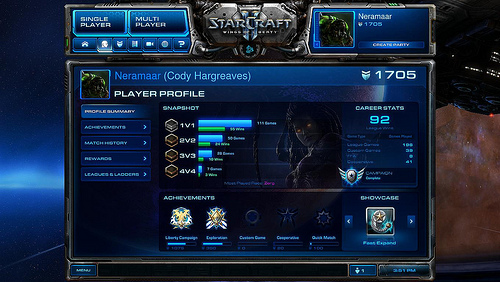 Starcraft 2 Stratagems: Part Three .
Starcraft 2 Stratagems: Part Three . Top MMOs Featuring Player Marriage Options .
Top MMOs Featuring Player Marriage Options . Star Trek Online Interview: Executive Producer Stephen D'Angelo .
Star Trek Online Interview: Executive Producer Stephen D'Angelo .